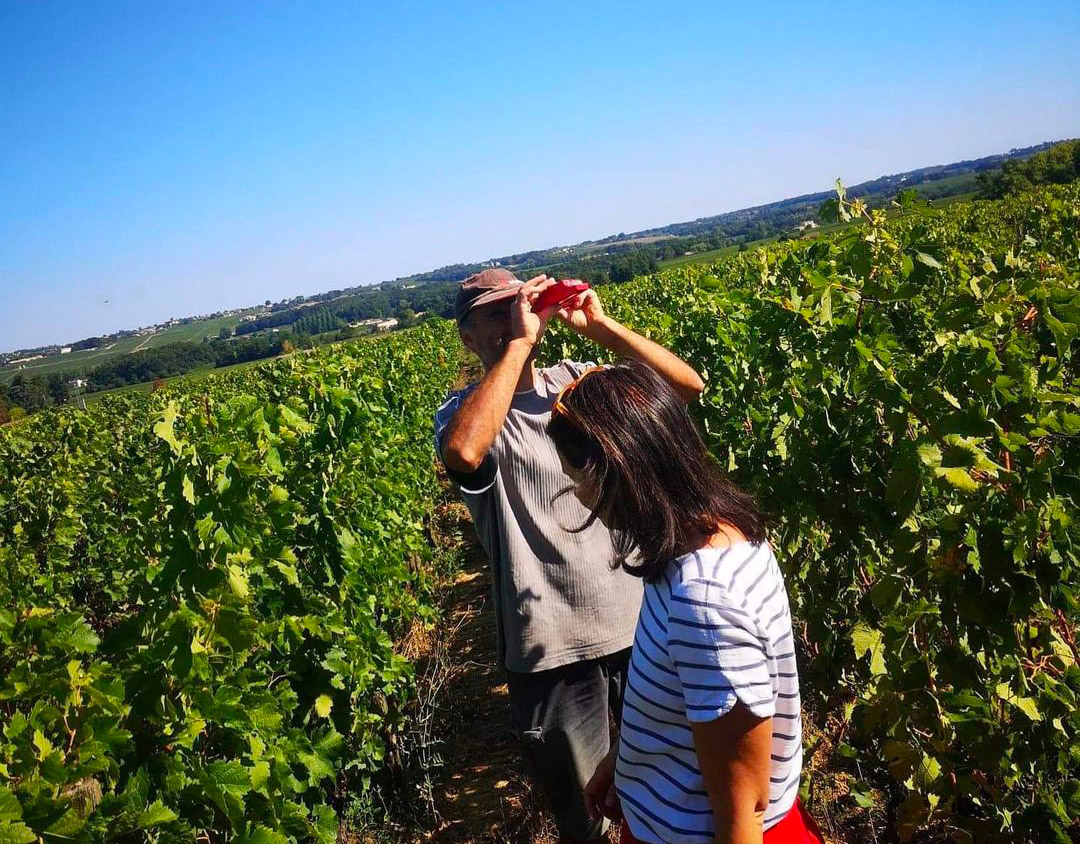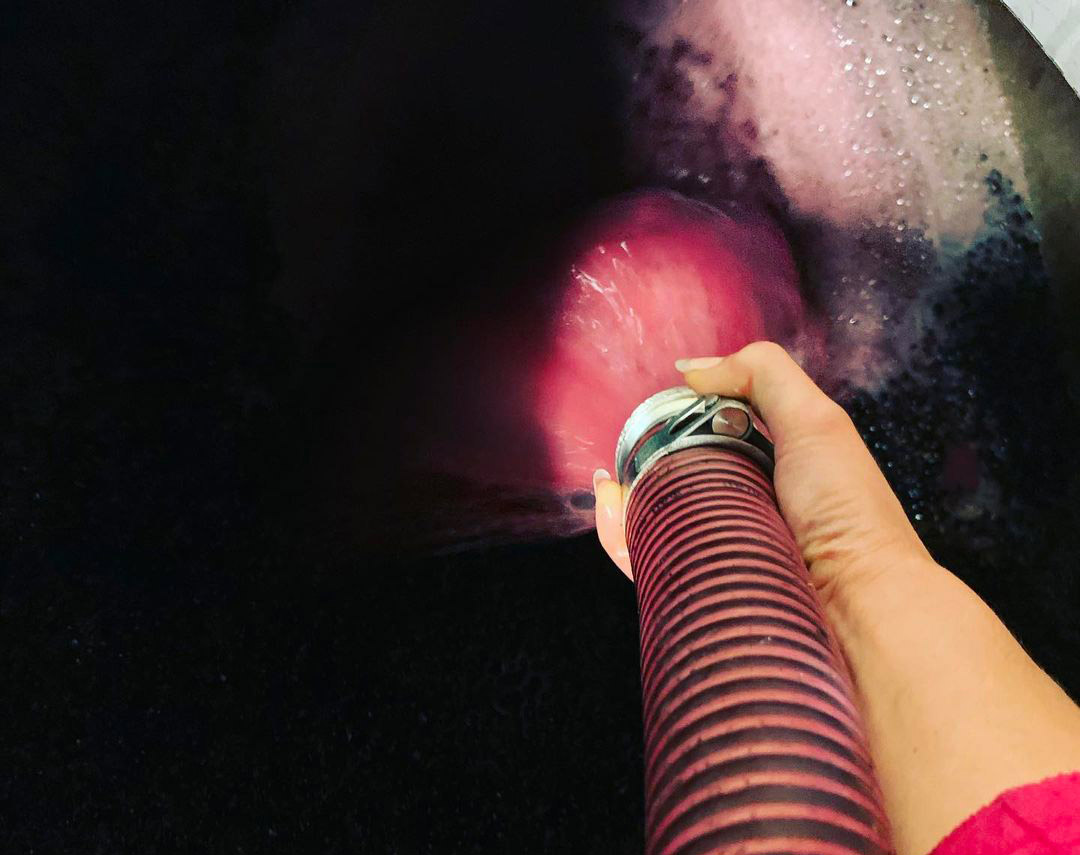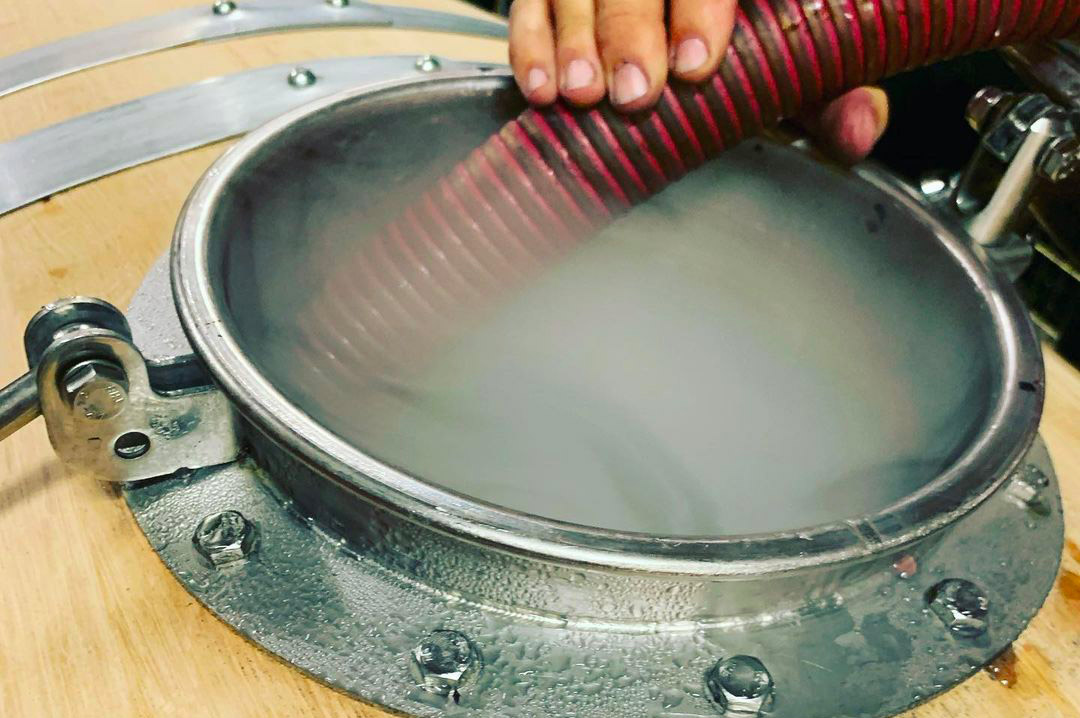Choosing the harvest date is a key element for success. The size of the vineyard allows waiting for perfect phenolic ripeness across the entire vineyard.
The taste of ripe and juicy fruit is a characteristic of Clos de Sarpe.
At Clos de Sarpe, the harvest is hand-picked by a team that returns year after year and therefore works with the benefit of experience and the concern for precision demanded by Jean-Guy Beyney and Maylis Marcenat. The grapes are hand-picked into small crates, to avoid crushing. The young Merlots are always picked first, then the older Merlots and we always finish with the Cabernet Francs.

Choosing the harvest date is a key element for success. The size of the vineyard allows waiting for perfect phenolic ripeness across the entire vineyard.
The taste of ripe and juicy fruit is a characteristic of Clos de Sarpe.
At Clos de Sarpe, the harvest is hand-picked by a team that returns year after year and therefore works with the benefit of experience and the concern for precision demanded by Jean-Guy Beyney and Maylis Marcenat. The grapes are hand-picked into small crates, to avoid crushing. The young Merlots are always picked first, then the older Merlots and we always finish with the Cabernet Francs.

The bunches are then sorted in a density bath.
Only perfect berries go into the tank. Vinification takes place in unlined cement tanks and 600L barrels.
The tanks are temperature controlled.
The wines are then aged in French oak barrels.
We use 70% new barrels and 30% 1-year barrels. Barrel ageing lasts for 13 to 14 months on average. The plots are kept separate up to the time of blending.

The wines are then aged in French oak barrels.
We use 70% new barrels and 30% 1-year barrels. Barrel ageing lasts for 13 to 14 months on average. The plots are kept separate up to the time of blending.
In the cellar, the organic ethic is reflected in the winemaking process. Everything is done to limit use of oenological inputs.
For many years, the use of sulphites at grape reception has been limited. With their low pH, Clos de Sarpe wines are naturally protected, without the need to add large amounts of sulphite during ageing.
Since purchasing the property, only indigenous yeasts have been used for the alcoholic fermentation. The wines are not fined or filtered.
Our wines are aged in French oak barrels, with a choice made to work only with coopers from the region.
We have also chosen lightweight bottles to limit our carbon footprint. All our suppliers are local.

Château Clos de Sarpe is the first wine.
It is an exceptional wine with a limited production of around 10,000 bottles per year.
The blend is always identical, 85% Merlot, 15% Cabernet Franc
The quintessence of Saint-Émilion wines, powerful, complex, long. Clos de Sarpe will charm you with its freshness, its notes of exuberant red fruit, its silky tannins.
To obtain this inimitable red fruit taste, we harvest when the grapes are perfectly ripe. The grapes are then meticulously sorted and only the perfect berries go into making the first wine. Winemaking is gentle, so that only the noble tannins are extracted.
Ageing by plot in French oak barrels, 70% new barrels and 30% 1-year barrels.
The wine is not fined on blending and not filtered before bottling.

Charles de Sarpe is our second wine.
Around 2000 to 3000 bottles are produced each year.
This wine is made by bleeding juice from the tank. The grape varieties are the same as for the first wine.
Charles de Sarpe is a pleasure-giving wine, combining elegance, roundness and fruitiness.
Ageing is carried out in barrel: 50% new barrels and 50% 1-year barrels.
As with the first wine, Charles de Sarpe is not fined or filtered